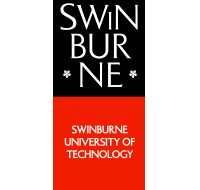About Bachelor Of Psychology (honours) in Swinburne University of Technology
The Bachelor of Psychology (Honours) is an integrated four-year program designed to satisfy the first step towards becoming a professional psychologist.
This degree will provide you the knowledge and skills to understand and explain human behaviour and relationships. You’ll learn about abnormal psychology, cognition, developmental psychology, psychological assessment, personality, social psychology and statistics, as well as biology, chemistry and physiology.
In your final year of study, you’ll complete an original research project as well as pre-professional training. The course is designed to prepare you for postgraduate studies in specialist areas of professional psychology such as counselling, clinical, organisational or sports psychology, or to pursue a career in research.
The Bachelor of Psychology (Honours) is professionally accredited by the Australian Psychology Accreditation Council (APAC).
Course learning outcomes
Upon successful completion of the Bachelor of Psychology (Honours), graduates will be able to:
- systematically review and critically evaluate research from a variety of sources to inform their knowledge and conceptual understandings in social and behavioural sciences, and psychology
- formulate arguments that are fit for purpose and demonstrate an understanding of the relevant theories and evidence in behavioural studies and psychology
- critically analyse information to generate creative solutions to solve complex problems in the area of social and behavioural sciences and psychology
- define and integrate theoretical principles and apply these in their disciplinary areas of expertise
- apply knowledge and skills with responsibility and accountability for their own learning and practice, individually and in collaboration with others
- interpret and communicate ideas, problems and arguments in modes suitable to a range of audiences using a range of media
- coherently articulate a line of reasoning demonstrating cultural sensitivity and apply a framework to analyse and offer solutions to ethical dilemmas in local and international context
- demonstrate an advanced level of knowledge about the theories and research methods in psychology
- analyse, consolidate, synthesise and evaluate psychology knowledge with a considerable degree of intellectual independence
- design and conduct a coherent, substantial, independent research project and successfully execute it in a timely and self-directed manner
- communicate and defend psychological arguments to specialist and non-specialist audiences in oral and written form
- apply psychological theories, research principles and skills in order to problem-solve in a range of research settings and contexts
- practice ethical awareness, collegiality and respect in academic and professional contexts
- plan and manage their own time and project work effectively by prioritising competing demands and deadlines.
Career opportunities
Future career options for graduates of this degree may include social welfare consultant, medical researcher, child safety officer, health officer, clinical worker and child development officer.
Graduates seeking general registration as practicing psychologists in Australia must successfully graduate from an accredited postgraduate program, such as the Master of Psychology (Clinical Psychology), Doctor of Philosophy (Clinical Psychology) or Doctor of Psychology (Clinical and Forensic Psychology), or undergo a two-year supervised internship program.
For more detailed information on Australian requirements for registration as a psychologist, visit the Australian Psychological Society website.
Class 12th: 85%
English language requirements
Each Swinburne course has a minimum English language requirement for entry.
Swinburne English Language Centre - EAP 5 advanced level with overall 65% & all skills 65% or above
IELTS (Academic Module) - Overall 6.5 No individual band below 6.0
PTE Academic - 79 (Reading no less than 18, Writing no less than 20)
PTE Academic - 58 (no communicative skill less than 50)
Swinburne University of Technology Highlights
| University Type |
Public |
| Campus Setting |
Urban |
| Establishment Year |
1908 |
| Student Ratio (Female to Male) |
38:62 |
| Graduate Employability Rate |
84.8% |
| No. of Courses |
261 |
| No. of International Students |
26% |
| Cost of Attendance |
AUD 20,000 – AUD 50,000 (annually) |
| Applications Accepted |
Agent/Online |
| Work-Study |
Available |
| Intake Type |
Semester wise |
| Mode of Program |
Full time; part time and online |
Swinburne University of Technology Average Tuition Fees And Other Expenses
| Department Name |
Total Fee (UG) |
| Arts and Humanities |
AUD 19,698 – AUD 24,623 |
| Aviation |
AUD 32,874 |
| Business |
AUD 32,874 – AUD 41,093 |
| Design |
AUD 19,698 – AUD 28,077 |
| Engineering |
AUD 39,070 – AUD 49,845 |
| Health Sciences |
AUD 28,077 – AUD 35,096 |
| Sciences and IT |
AUD 28,077 – AUD 37,436 |
| Law |
AUD 43,832 |
| Media and Communication |
AUD 19,698 – AUD 24,623 |
| Nursing |
AUD 26,400 |
